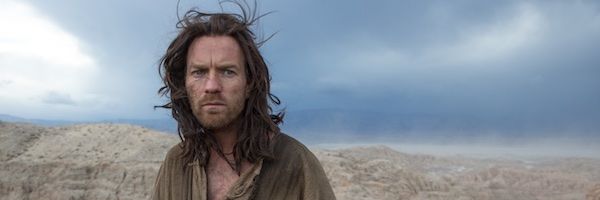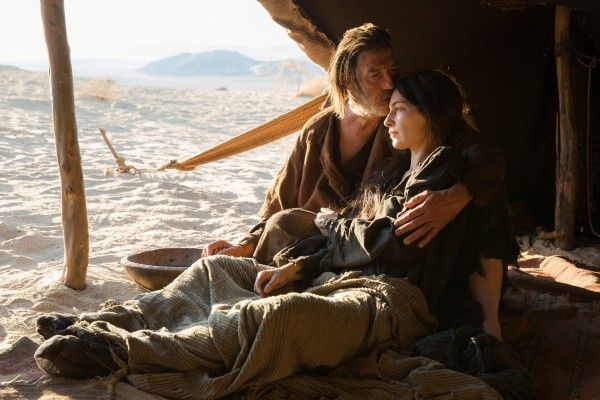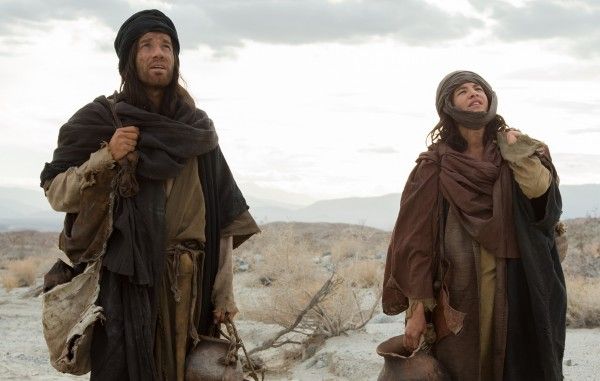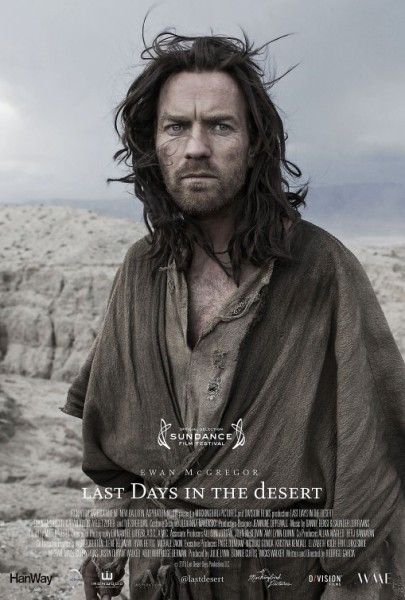[This is a re-post of my Last Days in the Desert review from the 2015 Sundance Film Festival. The film opens in limited release today.]
The Bible is the bestselling book of all time, and so over the years there have been many, many artistic adaptations and interpretations of the litany of stories found within. The Jesus story is no doubt one of the best known, and while a sudden interest in Biblical-themed films has turned out some fairly straightforward adaptations, writer/director Rodrigo García’s drama Last Days in the Desert takes a uniquely fascinating view of Jesus Christ by chronicling the final days of his 40-day fast in the desert. Ewan McGregor plays both Jesus and the Devil (credited as “The Demon”) in what proves to be a slow, but ultimately interesting take on one of the most iconic people in history.
The film takes place towards the very end of Jesus’ desert walk, and when we meet him he doesn’t yet seem to have found what he was looking for: guidance. He still seeks answers from his Father, but in return he keeps running across the Devil himself, also played by McGregor, who is full of taunts and temptations. Thirsty and tired, he eventually comes across a small family: a father (Ciaran Hinds), a son (rising star Tye Sheridan), and a very ill mother (Ayelet Zurer). Their names are never given, and are instead simply referred to as Boy, Father, and Mother. Upon meeting the father, Jesus is invited to stay with the family for a while.
As he gets to know the family better, Jesus also begins to understand their issues. The son wishes to go to Jerusalem and make a life of his own, but his father favors the desert and intends for his son to help build his own house nearby and follow in his father’s footsteps by collecting and selling stone. The son confides in Jesus his frustration, as does the father, and Jesus is caught in the middle. One night, The Demon makes a wager with Jesus: if he is able to “untie the knot” of the family’s troubles, The Demon will leave him alone for the rest of his trip.
What ensues is a slow-moving, sometimes too contemplative story, but in the end it’s an ultimately fulfilling one. García uses this interaction between Jesus and the family (specifically the boy and father) as a way to convey Jesus’ own difficult relationship with His Father, and it all comes to a rather unexpected and somewhat moving finish. It’s just a bit of a slog to get there at times.
McGregor is great as dual characters, and it’s these scenes between Jesus and The Devil that are the most compelling. The tension is thick and yet, the conversations between the two aren’t entirely contentious. They both know the power one another holds, and so they play their cards fairly close to the vest save for a couple of fascinating instances of unguarded candor. I would have been wholly entertained with 90 minutes of McGregor versus McGregor. And indeed, temptation isn’t all that effective unless the other party seems at least partially agreeable, and it should be noted that the temptations offered in Last Days in the Desert are not the same as those offered to Jesus in the Bible—they’re a bit more introspective.
McGregor’s performance as Jesus Christ is one of contemplation, introspection, and quiet frustration, but his portrayal of The Demon is smart as well. He’s not masked, covered in makeup, or backlit by flames. Instead, The Demon is nearly an exact mirror of Jesus himself (save for a few pieces of jewelry), representing the potential for Him to carve out a different path—one in which he denies his Father.
It’s also well worth noting that Emmanuel Lubzeki’s cinematography is unsurprisingly magnificent. Filmed in the deserts of California, the vast openness of the land reflects Jesus’ lonely state of mind, and there are a couple of shots in here that are simply jaw-dropping, not only for their beauty but thematically; Lubezki taps into some really interesting concepts here.
And yet, the film does move very slowly and drags in parts, mostly because the whole dynamic with the family doesn’t fully come together thematically until later in the film. I moved up in my seat everytime McGregor vs. McGregor was on screen, but some of the scenes involving the father or the son felt like they dragged on. They’re not entirely without merit as it all coalesces in the end, but the film does tend to linger on the meditative a bit too long.
It’s hard to bring something new to the story of Jesus Christ, but García succeeds in offering up a unique portrait of the man that is neither defamatory nor overly reverant. It’s a fascinating film that’s somewhat hindered by a tendency to meander in places, but it’s poignant conclusion leaves a lasting impression.
Rating: B




